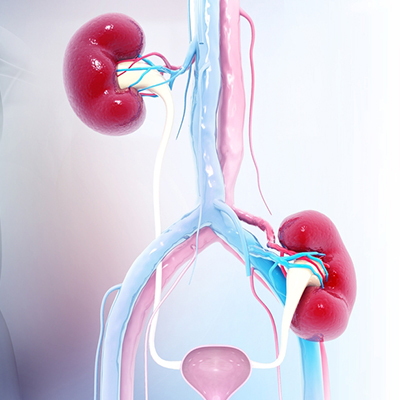Kidney Transplantation in Anantapur
Kidney transplantation in Anantapur, also known as renal transplantation, involves the surgical implantation of a kidney into a patient suffering from end-stage renal disease. This procedure by Best Renal Transplant Physician in Anantapur is generally categorized into two types: deceased-donor transplantation and living-donor transplantation, based on the origin of the donor organ.
A kidney transplant by Renal transplant surgeons in Anantapur is frequently regarded as the preferred treatment option for individuals experiencing kidney failure, as opposed to enduring a lifetime of dialysis. This procedure can effectively address chronic kidney disease or end-stage renal disease, ultimately enhancing the patient's quality of life and extending their lifespan.
Ideal candidate for transplantation
A kidney transplant is often considered the most effective treatment for individuals experiencing kidney failure, provided they are in suitable health for the procedure. However, it is essential that the advantages of the transplant surpass the associated risks. It is always better to discuss the same with Nephrology specialist in Anantapur, Dr. M. Surendra Babu

- To qualify for a kidney transplant, the following criteria must be met
- You should have a history of chronic kidney disease.
- You must be in good health to endure significant surgical intervention.
- The transplant should have a favorable likelihood of success.
Who cannot get a transplant
Not all the patients are in good health condition to go through renal transplantation by Kidney transplant specialist in Anantapur. You need to be capable of adhering to the necessary daily medications post-transplant, which include immunosuppressive drugs. There are several common factors that may indicate a kidney transplant is not the most suitable treatment option for you, including:
- Your overall health may be too compromised or fragile to endure the surgery and the subsequent care required.
- You may have recently experienced serious health issues such as cancer, a significant infection, a heart attack, or a stroke.
- You might find it challenging to adhere to the regimen of immunosuppressant medications necessary following a kidney transplant.
The health risks linked to a kidney transplant encompass those related to the surgical procedure itself as well as the potential rejection of the transplanted organ. Additionally, there are risks associated with the side effects of immunosuppressant medications, which are necessary to avert the body from rejecting the new kidney. Determining the appropriateness of a kidney transplant is a personal choice that warrants thorough reflection on the significant risks and advantages involved. It is advisable to discuss this decision with family members, friends, and other trusted advisors.
Kidney transplantation serves as a treatment for advanced kidney disease and kidney failure; however, it is important to note that the procedure does not constitute a cure. Certain types of kidney disease may recur following a transplant.
